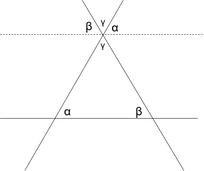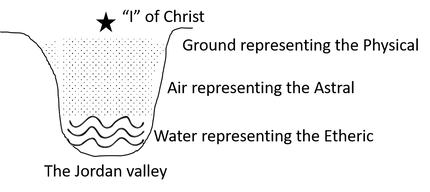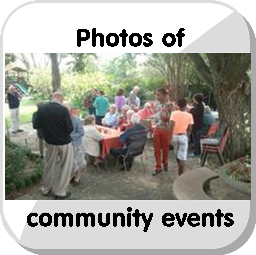|
by John-Peter Gernaat Rev. Frimut Husemann presented two talks on 8th December and 15th December. Contemplating the world within the human being we note that we take in the world through our senses. We can experience this in infants: they hear adults speak and learn to form words by imitation; they fall, cry and try again and again to stand. We know from the person know as Kasper Hauser who was held in a dark prison till age fourteen that his senses were fully developed nonetheless, but he lacked understanding. He saw a tree and assumed it was ready-made like that. He had to be shown that a seed planted in the soil germinates and grows into a plant. Can you see a dot of ink on a page? No, it is not something you can appreciate through your senses. It is something we grasp through knowing. Look at a triangle: We cannot see that the three angles of a triangle make up a straight line or 180°, this is something we can only grasp through knowing. So, when a teacher says to a child: “surely you can see this” it is an incorrect statement. Our senses do not tell us that it is so, it requires knowledge to understand this. We take in the world through our senses but every human being has their individual knowledge and ideas. As a result everyone creates their own reality. No one can experience another person’s reality. We have a connection to our body, but our body is also a part of nature. By the age of 30 we begin to distance ourselves from our body. The body we have is given to us by nature. The understanding, for examples, that we are boy or girl is not inherent in the body, it comes through understanding. Under anaesthetic a part of body can be removed and we realise that we are not in that part of our body. We can think about the world only because we have a body. The body is a mirror to our thinking enabling us to relate to the natural world. We can look at the human being as a place where the world has freedom. In the Gospels Christ refers to himself as the Son of Man. How do we understand this? This picture symbolises the human being. When Jesus stood in the Jordan, we know from Rudolf Steiner that his “I” had departed and that the Christ was then able to unite with Jesus. Firstly the I of Christ united with the astral body of Jesus (this occurred during the 40 days in the desert) and he became a teacher. Then the I of Christ united with the etheric body of Jesus and he could heal. Finally, at the end of the three years the I of Christ had fully united with the physical body of Jesus and the “I” was born on the cross. The Son of Man is a result of the evolution that occurred on Old Saturn, Old Sun and Old Moon. Through the “I” the Son of Man becomes a unit in the realm of Revelation. Christ permeates the whole world except he does not permeate me. I have a choice to allow him in. Once we are fully permeated by the Christ this evolution will end. We must realise that we are not permeated by Christ and we must school our souls in this regard. Christ is not absolute. He wants to become so but can achieve this only through human evolution. While we are not yet permeated by Christ we act in ways that are selfish and wrong. For example, Frimut travelled 9000km to work in our community, but that act of travelling caused harm – it was a sin – that will have to be atoned for by someone at some point in time. This talk was summarised as: the human being is not born instinctually human. We are instinctually animal, see a child that is raised by wolves, it behaves like a wolf. We learn to become human through our interaction in society with other humans. Because we see it as natural that a human is raised by humans, we think that being human is natural. We learn by culture and at about 20 years of age we gain our own will and aims. We are born by nature We learn by culture We gain our own aims Our evolving continues and at 35 years of age we discover that we need to learn in other ways, we can no longer learn by nature as we did as a child. We have gained a certain freedom until we begin to question everything, like Faust. Faust comes on stage and proclaims all he has achieved and learned in his life, but he is not content, he wants to understand how this creation is held together. We can come to an understanding that the creation is held together in us. We are empty and we need this emptiness to be filled. We need the Will to call God into our being. We hear in our Creed that the Father God is born in eternity. This occurs through our own activity. All of creation exists in harmony. We are the Gap, we can do wrong, consciously or unconsciously. We can even do evil. The sickness of sin is a reality where God is absent. We receive certain impulses from the past and others from the future. They meet in us.
0 Comments
Leave a Reply. |
Articles Archives
December 2020
2023 - January to December
2022 - January to December 2021 = January to December 2019 - January to December 2018 - January to December 2017 - January to December 2016 - January to December 2015 - January to December 2014 - November & December 2013 - July to December 2013 - January to June 2012 - April to December Send us your photos of community events.
Articles (prefaced by month number)
All
|



 RSS Feed
RSS Feed